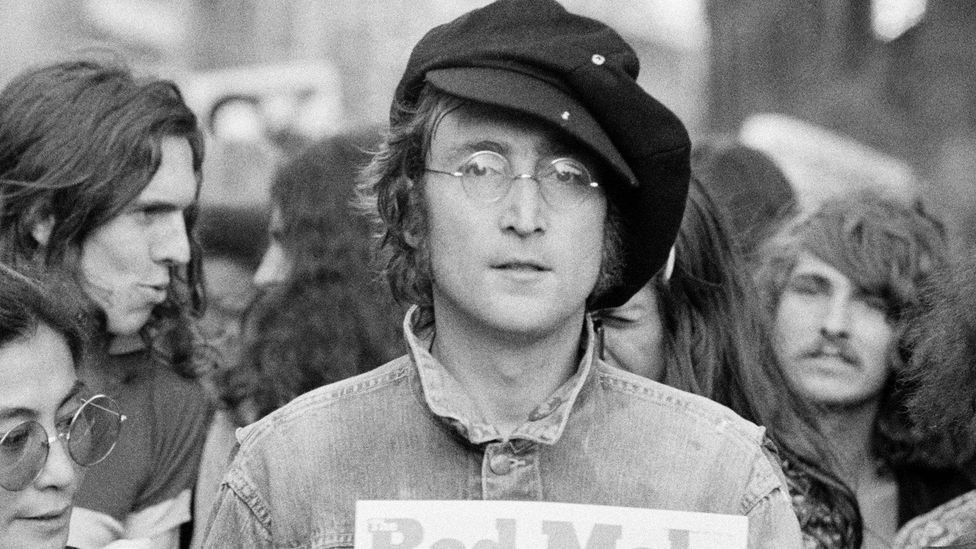From humble beginnings, The Beatles rose to change the world. They may have started as a pop act peddling pleasing platitudes, but once they had enamored a whirlwind of mania, the Fab Four quickly spun things in a new baroque direction.
Speaking about The Beatles, the revered composer Leonard Bernstein said that they were akin to Robert Schumann. “This new music is much more primitive in its harmonic language,” Bernstein said, “It relies more on the simple triad, the basic harmony of folk music. Never forget that this music employs a highly limited musical vocabulary; limited harmonically, rhythmically, and melodically. But within that restricted language, all these new adventures are simply extraordinary. Only think of the shear originality of a Beatles tune.”
When they departed, fittingly on the cusp of a new decade, it was up to the arising acts of the 1970s to carry the mantle of musical development further. For John Lennon, this came in the form of Electric Light Orchestra (ELO).
Speaking about Jeff Lynne’s outfit on WNEW Radio, Lennon explained: “‘Showdown’ I thought was a great record, and I was expecting it to be number one, but I don’t think UA [United Artists] got their fingers out and pushed it.”
Continuing, he added: “And it’s a nice group – I call them ‘Son of Beatles’ – although they’re doing things we never did, obviously. But I remember a statement they made when they first formed was to carry on from where the Beatles left off with ‘Walrus,’ and they certainly did.”
Indeed, Lynne said that the group’s goal was to take up “where the Beatles had left off and to present it on stage.” Naturally, given that classical composers were also in his arsenal of influence, it was their latter days that he borrowed from most, admitting that he “was very influenced by the Beatles’ sound of ’68 and ’69.”
He explained: “That has obviously been a big influence on the way I looked at songwriting.”
As Bernstein said of the Fab Four, ELO developed a way of bending the typical language of pop towards a more orchestral approach while also reflecting this conceptually in the theme of the songs. At its heart, the song is actually secretly a blues track. However, this core bars composition is lost mid an array of counterpoint that creates a unique pop song.
This is ultimately what spawned the band in the first place. “It came from me and Roy Wood meeting up in clubs in Birmingham, nightclubs,” he explained on Raised on Radio. “(It was) when I was in the Idle Race to discuss strings in a group. You know, I never heard a group with strings, really. We talked, and we talked about it.” Suddenly, they figured out a way to fiddle with pick-ups and blend the blues with overtures, creating a sound that Lennon recognized as the natural development of The Beatles.
In conclusion, The Beatles’ influence on the music world was immeasurable. Their legacy lives on through bands like Electric Light Orchestra, who picked up the torch and carried it forward. ELO’s unique fusion of classical and pop elements not only paid homage to The Beatles but also pushed the boundaries of music, ensuring that the Fab Four’s impact on the world of music would continue to resonate for generations to come.
